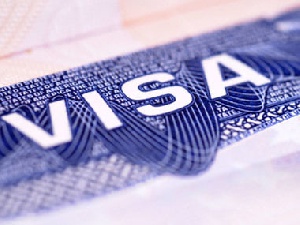Ghana will issue a new electronic-Visa system to facilitate the process of getting travel authorisations next year.
Already, some companies are being considered to partner the Ghana Immigration Service (GIS) to design and issue e-visas.
The visa policy reform is part of the $40-million World Bank-funded Ghana Tourism Development Project (GTDP) to enhance Ghana’s tourism and hospitality sector and make the country a more attractive destination.
Daily Graphic reports that the acting Project Coordinator for the GTDP, Divine Kwame Owusu-Ansah, says this move would expedite the process of acquiring visas to the country.
“We are working with the GIS to set up the E-visa system for the country. We hope to recruit the firm to design, supply, install, and build capacity and deploy electronic visa solutions for the Immigration Service by the middle of next year,” he explained.
The private partner would work between January and May next year to get the system in place, with services available at the Kotoka International Airport (KIA) and any location around the world where a visitor would like to acquire a visa to travel to Ghana, he explained.
E-visa is an online platform, which allows an applicant to simplify online application to obtain a visa. It is used to verify the identity of a traveller via digitally with the help of a unique identification number and a digital signature.
This has been a game-changer for countries such as the United Arab Emirates, Kenya, Bhutan, Bangladesh, China, India, Montenegro, Myanmar, Nepal, Pakistan, Serbia and Sri Lanka.
The visa reform is one of the initiatives under the four components of the GTDP.
The first is strengthening the tourism enabling environment, which includes upgrading skills in the industry and setting up high-quality training institutions for the tourism and hospitality sector.
The others are developing tourism sites and destinations, as well as administering a tourism grant scheme; supporting tourism enterprises and project management and institutional capacity strengthening for the ministry and its agencies to enable them to implement the project and sustain the investments into the future.
General News of Tuesday, 20 October 2020
Source: www.ghanaweb.com













